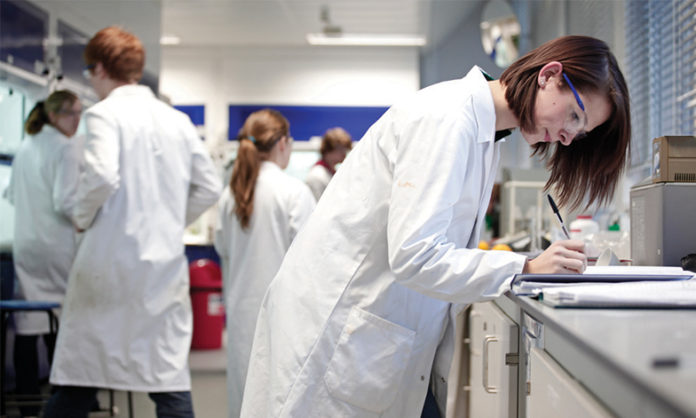Young male cancer survivors may significantly benefit from testosterone replacement therapy – especially after testicular cancer – according to the first ever clinical trial of its kind.
The research published in PLOS Medicine looked at one of the most common late-onset side effects experienced by young male survivors – reduced levels of the male sex hormone, testosterone.
Low levels of testosterone can be caused by cancer and its associated therapies such as chemotherapy and radiotherapy. It causes problems that impact the health of cancer survivors, including changes in body composition.
Young men with low testosterone levels carry on average more fat mass and less lean body mass than their peers, which is linked with a higher risk of conditions like heart disease, a significant cause of death in cancer survivors.
Professor Richard Ross, Head of the University of Sheffield’s Academic Unit of Diabetes, Endocrinology and Reproduction and Honorary Consultant at Sheffield Teaching Hospitals NHS Foundation Trust, said: “Cancer and its treatment can be life altering, leaving patients feeling unwell and low in mood.
“Most cancer research studies are focused on developing or improving cancer therapies, so this study is a great step forward for cancer survivors. It’s the first of its kind to investigate a treatment for one of the late effects of cancer and translate our research into clinical evidence that will support doctors and their patients’ recovery from cancer.”
Funded by Cancer Research UK, the clinical trial was the first randomised double-blind placebo-controlled study of testosterone replacement in survivors with borderline low testosterone levels.
Over six months, half of the 136 men (aged 25 to 50) received testosterone replacement therapy, with the other half receiving a placebo. Nine out of 10 of these men had been treated for testicular cancer.
At the end of the trial, those on hormone replacement therapy had on average lost 1.8kg loss of fat mass and gained 1.5kg in lean body mass.
Decrease in fat mass was greatest in those with high levels of fat around their waists – which is associated with higher risk of conditions like heart disease later in life.
“These late effects of cancer on the health of cancer survivors are increasingly being recognised,” added Professor Ross.
“The results of this study have significant benefits alongside improvements in body composition, potentially offsetting the risk of increased mortality from heart disease.”
James Ashton, a University of Sheffield student studying aerospace engineering, has been treated for cancer twice. The experience led him to becoming a lay representative working nationally with the Teenage Cancer Trust and Cancer Research UK.
He said: “This study is a monumental breakthrough as it is the first clinical trial funded by Cancer Research UK for people who have survived cancer. As more people survive, it is becoming more recognised that the late-onset side effects of cancer treatment can have a lifelong impact on their health and quality of life. I’m proud to be part of the forefront of getting research into survivorship prioritised.”
Dr Áine McCarthy, from Cancer Research UK, said: “As more and more people survive cancer, it’s becoming increasingly important to understand and limit the potential long-term side-effects from treatment.
“One side effect young male cancer survivors often experience is a decrease in testosterone levels, which can affect their weight and other aspects of their health and wellbeing. By demonstrating that using testosterone replacement therapy for six months can mitigate some of these effects, this small study offers a potential way to improve survivors’ quality of life. But this treatment might not be suitable for everyone and we still don’t know how long to give it for, so it will be interesting to see the next steps for this research.”







